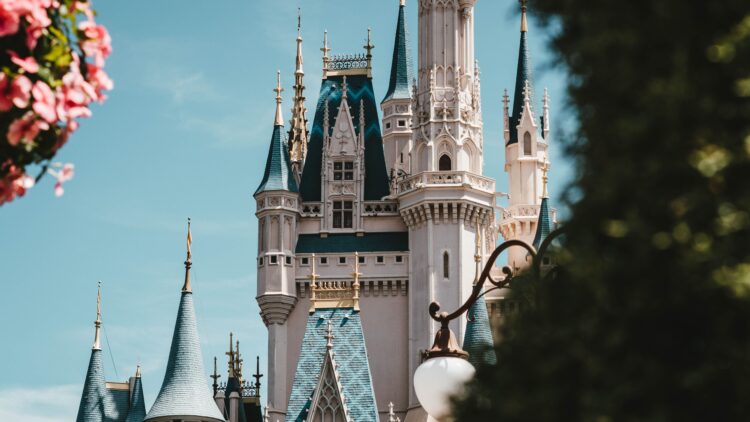Walt Disney Studios has been at the forefront of the film industry for nearly a century. What began as a dream carried on the shoulders of a lovable talking mouse has now snowballed into a global empire.
Disney doesn’t follow trends, they create new paradigms . But with innovation comes controversy, something Disney has become very familiar with over the decades. Now, Disney CEO Bob Chapekn is responding to criticism that the company has become “too woke.”
The COVID-19 pandemic was a tough time for Disney.

That statement probably sounds redundant and maybe even a little ignorant. Let me be clear: I am not suggesting there’s a hierarchy wherein fiscal profits are above the cost of human life. I am simply saying that the House of Mouse suffered greatly during the pandemic.
First, there was the whole fiasco regarding the closure of movie theaters.

For production companies and movie studios, theaters are the lifeblood. A film’s success/failure rests solely on the shoulders of box office numbers, and without there being butts in seats — losses became rampant.
On top of that, Disney decided to get into a pissing competition with one of its biggest stars, Scarlett Johanson.

Scarlet Johanson accused Disney of sacrificing the potential box office revenue of Black Widow in order to grow their budding streaming service, Disney +. After a messy and public back and forth, the breach of contract suit was finally settled.
Then came the cost-cutting measures, implemented by Disney CEO, Bob Chapek.

In order to trim the budget, Chapek decided to raise prices . Admission to Disney theme parks rose, as did the cost of merchandise and concessions inside said parks. Chapek also hiked Disney + subscriptions from $7.99 per month to $10.99.
Let’s not forget Chapek’s ill-fated comments regarding the release of ‘Shang Chi And The Legend Of The Ten Rings’.

Shang Chi and the Legend of the Ten Rings was the first Disney movie to have a staggered release. It first premiered in theaters and began streaming on Disney + 45 days later. At the time, Chapek called it “An interesting experiment.”
The film’s star, Simu Liu, found Chapek’s choice of words especially degrading.

” We are not an ‘interesting experiment ,'” Simu wrote via Instagram. “We are the underdog; the underestimated. We are the ceiling-breakers. We are the celebration of culture and joy that will persevere after an embattled year.”
Once again, Chapek finds himself in hot water and is fielding criticism that Disney has become “too woke.”

In a nutshell, woke refers to being well-informed of political and cultural movements within society — particularly those that pertain to marginalized communities.
Chapek was asked about Disney’s attempts to appear more “woke” during the ‘Wall Street Journal Tech Live’ event.
In particular, the Wall Street Journal’s Editor in Chief, Matt Murray, made reference to the same-sex kiss in Buzz Lightyear as well as the revamped ending in the new live-action version of Pinnochio.
“You know, I think the more complex something is, the more you really have to drill down into the basics,” Chapek began.

“And we want our content to reflect the rich, diverse world that we live in. And, again, I guess that’s another way of saying, ‘ Catering to your audience .’”
Chapek goes on to talk about how the world is a rich and diverse place, and that it’s important that Disney’s content be a representation of just that.

Chapek also made sure to mention the benefits from a strategic commercial standpoint, arguing that Disney is looking to cater to the largest possible audience.
Above all else, Chapek wants Disney to be a place that brings people together.

“I always say, when someone walks down Main Street and you look at the castle, you’re not thinking, ‘ I’m on one side of the political spectrum or the other .’”
When asked to explain the role that he himself plays in pushing Disney in a”woke” direction, Chapek reiterated his original focus.

The CEO admits that there are lengthy discussions about shaping Disney’s content. “But in the end, we have to follow our North Star, which, again, is storytelling and catering to the audiences that actually love Disney and all audiences that love Disney,” he explained.
Toward the end of the interview, Murray asked Chapek directly if he feels that Disney has become too “woke.”

“I think Disney is a company that has survived for a hundred years by catering to its audience and it’s going to thrive the next hundred years by catering to its audience ,” Chapek responded.
Chapek’s comments seem to mirror the vast majority of the Disney audience.
“Characters being gay, trans, or not white isn’t political, it is being representative of the population and the audience ,” Twitter user @thevelcrostrap argues.
The days of dark-skinned Disney villains and stories that purport a heterosexual patriarchal hierarchy are gone.

Here to stay is a much more inclusive Disney — one that seeks to relate to its fans across a broad spectrum comprised of all races, religions, and gender identities, with films that anyone and everyone can relate to.

















































